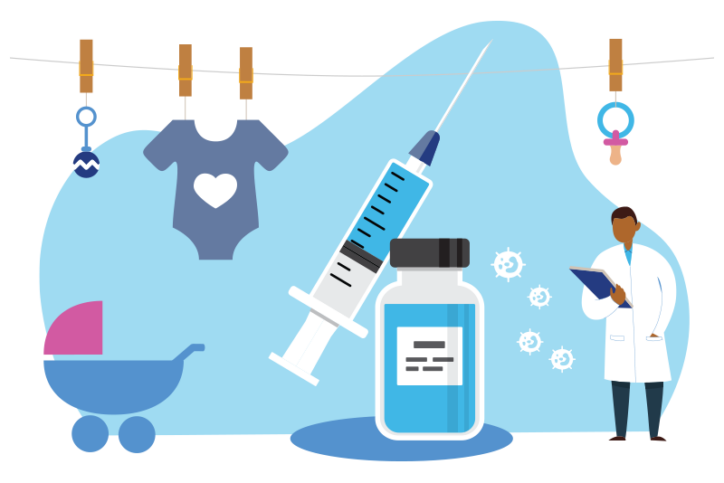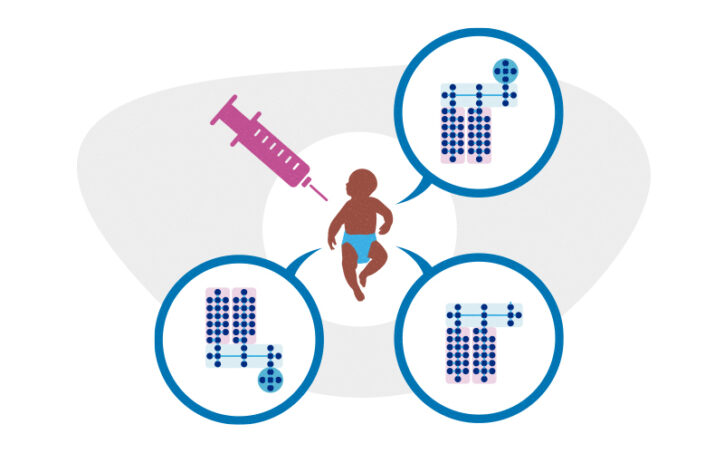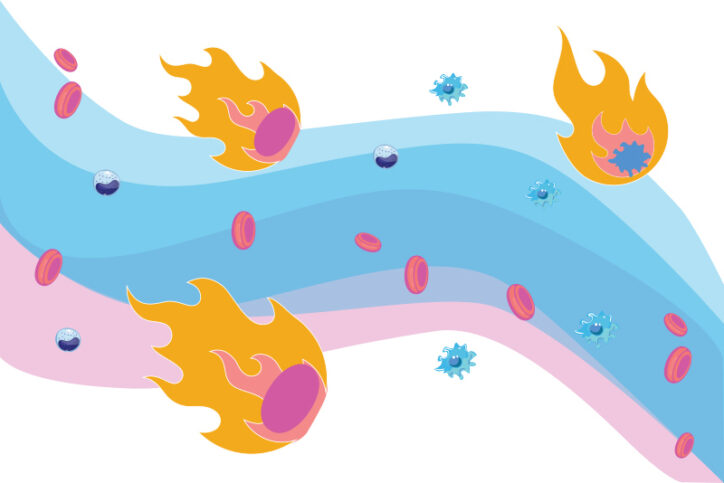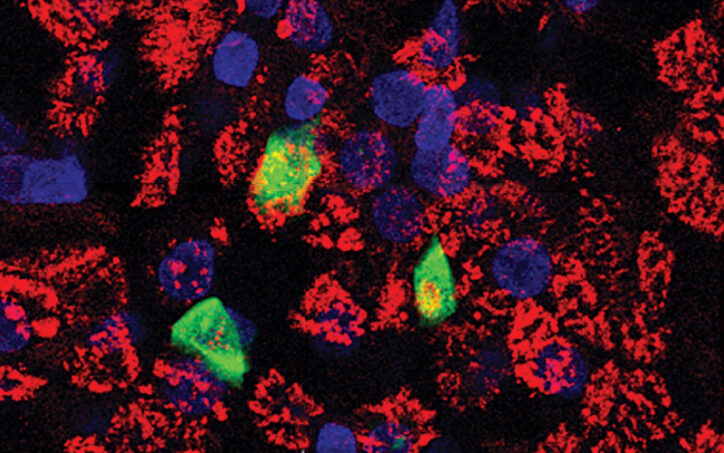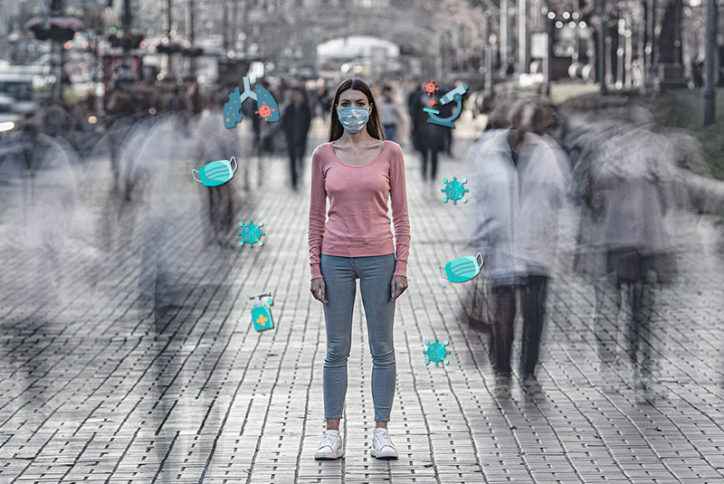Archive for infectious diseases
What to know about Enterovirus D68
A virus called the Enterovirus D68 (EV-D68) is one to look out for — not just seasonally, but year-round — as it can cause serious health risks to children. EV-D68 is just one strain of Enteroviruses, which cause colds, fever, headaches, vomiting, and rashes among other symptoms. Most Enterovirus infections are very common and spread ... Read More about What to know about Enterovirus D68
Tagged: asthma, fever, infectious diseases
A new vaccine formulation could finally protect babies against RSV
Though often mild, respiratory syncytial virus (RSV) infection can cause babies to be hospitalized with bronchiolitis or pneumonia. Globally, it is the leading cause of death in children under 5. Several vaccines against RSV are being tested in adults. But there has been no progress on an RSV vaccine for children since 1966 — the ... Read More about A new vaccine formulation could finally protect babies against RSV
Tagged: immunology, infectious diseases, vaccines
Old vaccine, new tricks? Unlocking the BCG vaccine’s potential
Could a century-old vaccine offer clues for designing the vaccines of tomorrow? Ofer Levy, MD, PhD, director of the Precision Vaccines Program at Boston Children’s Hospital, wants to find out. One of the world’s oldest and most widely used vaccines, the Bacille Calmette-Guérin (BCG) tuberculosis vaccine may at first seem like an unlikely source of ... Read More about Old vaccine, new tricks? Unlocking the BCG vaccine’s potential
Tagged: immunology, infectious diseases, proteomics, tuberculosis, vaccines
Nurses Week 2022: Leading an enterprise-wide response to COVID-19
The Infection Prevention Control (IPC) team at Boston Children’s Hospital plays an important role in the management of all infectious disease events. Its focus is to maintain a safe environment for patients, families, and staff. Prior to the COVID-19 pandemic, the IPC department responded to a novel influenza pandemic and prepared extensively for patients with ... Read More about Nurses Week 2022: Leading an enterprise-wide response to COVID-19
Tagged: coronavirus, infectious diseases, nursing
How COVID-19 triggers massive inflammation
Why do some people with COVID-19 develop severe inflammation, leading to respiratory distress and damage to multiple organs? A new study in the journal Nature provides an explanation: the SARS-CoV-2 virus infects and kills critical immune cells in the blood and lungs, which set off powerful alarm bells as they die. Judy Lieberman, MD, PhD, ... Read More about How COVID-19 triggers massive inflammation
COVID vaccination in 5- to 11-year-olds: What does the science say?
The Pfizer–BioNTech COVID-19 vaccine was approved for children ages 5 to 11 in October, but many parents have been hesitant to get them vaccinated. A national study in The New England Journal of Medicine provides reassuring data, showing that the vaccine strongly protected this age group against severe COVID-19. Dr. Adrienne Randolph at Boston Children’s ... Read More about COVID vaccination in 5- to 11-year-olds: What does the science say?
Tagged: coronavirus, infectious diseases, vaccines
A new symptom of COVID-19 in young children: Croup
During the Omicron surge, pediatricians and emergency departments (EDs) began noticing something new: a surge in croup among infants and young children. Marked by a distinctive “barking” cough and sometimes noisy, high-pitched intakes of breath, croup can happen when colds and other viral infections cause the voice box, windpipe, and bronchial tubes to become inflamed ... Read More about A new symptom of COVID-19 in young children: Croup
Real-time genomic surveillance of bacteria could improve antibiotic therapy
Antibiotic-resistant bacterial infections are increasingly hard to treat, causing more than a million deaths annually around the world. Hospitalized patients with pneumonia, bloodstream infections, urinary tract infections, or abdominal infections are especially at risk. Like a game of Whac-A-Mole, bacteria can develop antibiotic resistance mutations within days of starting an antibiotic, only to be replaced ... Read More about Real-time genomic surveillance of bacteria could improve antibiotic therapy
A respiratory model of COVID-19, made from patients’ own cells
What happens in our respiratory tract once COVID-19 invades? A three-dimensional airway model, made from patient-derived stem cells, could provide answers about the initial stages of infection. The model not only replicates the infection process, but can be used to test potential antiviral drugs. Ruby Wang, MD, attending physician in Boston Children’s Division of Pulmonary ... Read More about A respiratory model of COVID-19, made from patients’ own cells
Tagged: coronavirus, infectious diseases, organoids, pulmonology, stem cells
From our labs and clinics: The top 10 COVID-19 science stories of 2021
As COVID-19 waxed, waned, morphed, and waxed again this year, research was taking place throughout Boston Children’s Hospital. Ongoing national studies the hospital is leading or co-leading include Overcoming COVID-19, a CDC-funded study on COVID-19 and multisystem inflammatory syndrome in children (MIS-C); IMPACC, examining immune responses in people hospitalized with COVID-19; and MUSIC, studying MISC’s ... Read More about From our labs and clinics: The top 10 COVID-19 science stories of 2021



